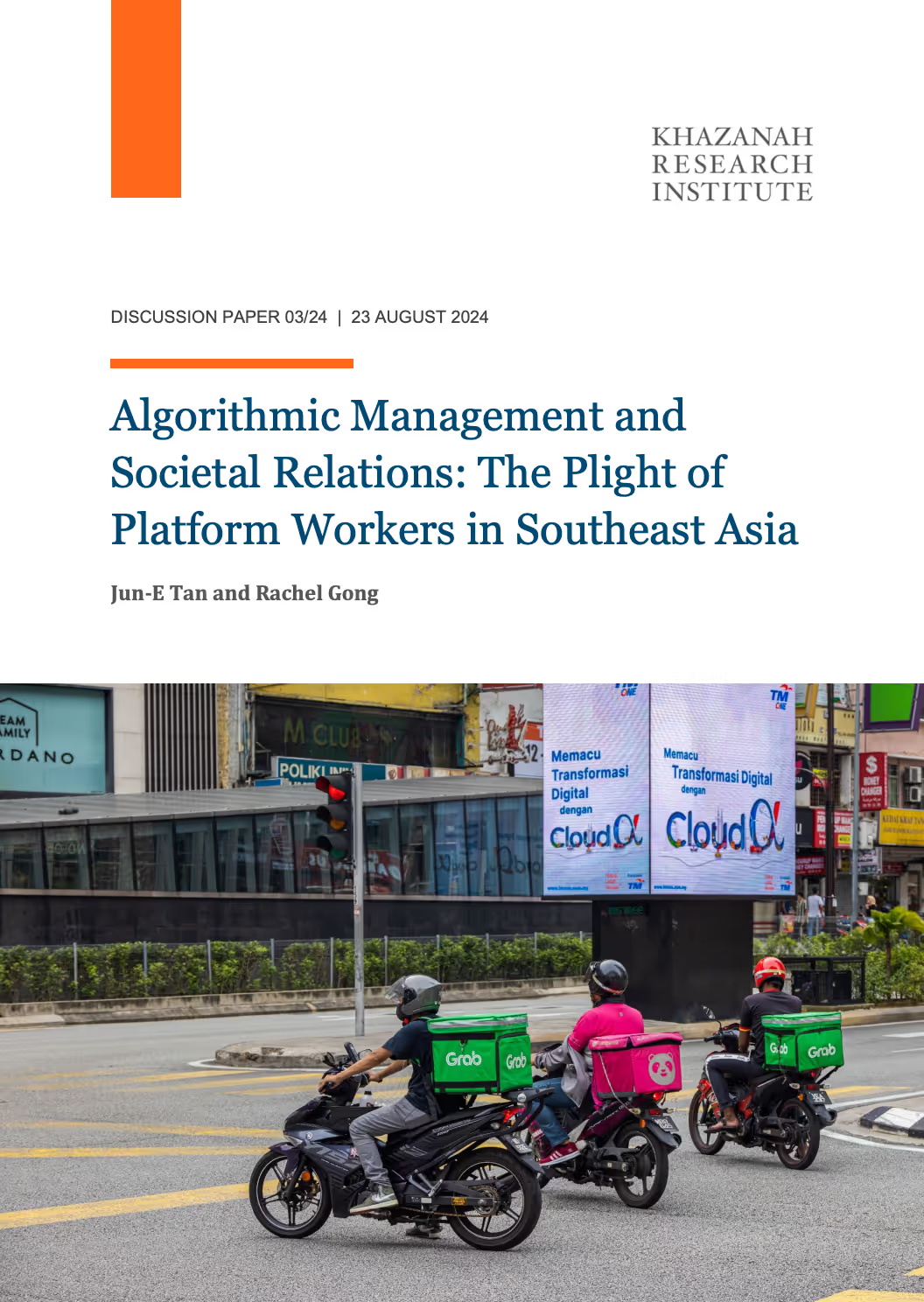
Algorithmic management is the use of computer programmes for the coordination of labour input in an organisation, such as planning, staffing, commanding, coordinating and controlling. Using AI, these management functions can be fully or partially taken over by automated decision making.
Using a case study of app-based drivers in Southeast Asia, this article explains the impact of algorithmic management on societal relations. First, algorithmic management causes disintermediation and the individualisation of work, isolating drivers from managers, coworkers and clients. Second, it disrupts formal labour relations and creates a vacuum in place of established duties and obligations between buyers and suppliers of labour. Third, it facilitates the consolidation of platform power through information asymmetry and the reduction of human intervention and agency.
Policies that focus more on governing technologies and platforms instead of workers may play an important role in tackling these issues. AI governance mechanisms should also go beyond the current emphasis on individual harms and redress; more attention should be given to addressing how technologies disrupt societal relationships.






.avif)






_2.avif)

